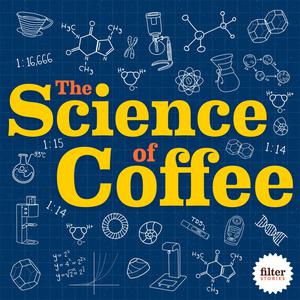Roasting coffee can be maddening. Just 4° Celsius is enough to make the same green beans taste distinctly different! And there are so many things roasters can play around with: temperature, time, fan speed, drum speed, types of probes…the list goes on and on.
So, if you want to start roasting yourself, where do you start!?
In the first half of this episode, I interview one of the world's leading roasting teachers who takes me through his published scientific research to give a clear answer. It’s as simple as 80%, 15% and 5%.
And then, in the second half, I show you why roasting coffee consistently batch-after-batch is so difficult. But these problems are finally being solved with smart technologies.
I visited the ROEST engineering team in Oslo and cracked open their innovative prototype P3000 roaster to show you the technology that allows anybody to roast coffee consistently and fully automatically.
I am so impressed with these innovations, I believe they’re going to change the coffee industry.
Please spread the word about The Science of Coffee!
Follow me on Instagram and tag me in an Instagram story
Write a review on Apple Podcasts
Leave a
5 star rating on Spotify
Dive deeper into the science of roasting
Explore
ROEST’s innovative products for the coffee industry.
Learn more from
Morten Münchow and his coffee roasting courses
Read Morten’s paper in collaboration with the University of Copenhagen on Roasting Conditions and Coffee Flavour
Connect with my very knowledgeable guests
Sverre Simonsen -
LinkedIn
Callum Gilmour -
LinkedIn
Veronica Balduc -
LinkedIn
Morten Münchow -
Coffee Mind website
Scott Rao -
Instagram
The Science of Coffee is made possible by these leading coffee organisations
BWT Water and More
Marco Beverage Systems
ROEST
Sustainable Harvest
Mahlkönig
The Science of Coffee is a spin-off series from James Harper's documentary podcast
Filter Stories
Subscribe to A History of Coffee podcast